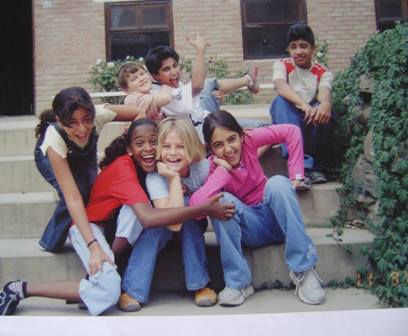
In my very short time in the United States, I have come to realize the very distinct line between ignorance and unawareness. Telling people that I am an Iraqi who grew up in Yemen is an instantaneous jaw-dropper, but I fail to understand why that is. Yes, the situation in both of these places is not entirely great, but I find myself wondering what exactly it is that shocks people so much. I am curious as to whether it is knowledge or ignorance that drives these reactions.
Many people that I have come across have been refreshingly open to learning the truth about where I come from, and how life back home really is, but I am overwhelmed by the stubbornness of the few who simply do not want to believe that cultures exist outside of the United States. I am a citizen of the United States, yet I do not identify as an American; this unfortunate truth is due to the numerous individuals who have made it clear that where I come from is a place associated with some kind of stigma – a mark of disgrace, and I blame all of this on ignorance. I lived in London for a year before I moved to the United States, and in retrospect, I realize that there is a fundamental difference between the general mentalities of the people that I encountered: In London, the international community is welcomed and respected – the British people living in London seem to have adapted to the vast majority of international individuals and have therefore adjusted their methods of judgment. People were extremely careful making statements about the Middle East, and the general majority of people who chose to speak up either on behalf of or against a certain issue were obviously very well educated in the matter; Ignorant comments were rare. The general reaction to my background was more obviously interest than shock, more curiosity than judgment.
No matter where you go in the world, the news will always be biased; the independent variable in this scenario is which side is being justified. Some individuals will blindly accept what they hear, the same one-sided argument, and that is misinformation – you are being fooled. Now, let’s take it a step further: let’s imagine that you choose to argue with someone based on this misinformation, and suddenly the accurate information is presented, but you choose to ignore it. You close your eyes and ears and pretend to have not heard what was said, or seen what you saw, simply because it provokes a challenging thought; I call this surrendering to ignorance. The information has been laid out in front of you, and your only job now is to form your own opinion based on this raw and factual material. While it takes effort to think for yourself, it is fundamental in eliminating ignorance.
I do not expect everybody to share my opinions, and I am well aware that many people have opposing ideas and sentiments. However, the important thing is that they are credible and not a product of blind conformity. The line between ignorance and unawareness is drawn when a person is given accurate information, but chooses not to believe it, and this could be for a number of reasons: it could be easier to adhere to the norm, it could be a matter of security. Learning something new can cause a state of discomfort, but whatever the reason is, the results are clear. Racism, sexism, and any other form of discrimination are all the results of ignorance. Education is key, and the media does not help with this issue. People need to start making up their own minds, thinking their own thoughts; this submission to the mainstream idea about anybody who is “different” is getting old. Ignorance is not bliss.


Wow! I completely agree with the author! Comments based on ignorance and lack of knowledge are unnecessary and they are the reason behind our social issues. Very well said Nooni!
What a well written article! She makes some great and valid points. Well done Noorito
http://rt.com/news/uk-free-speech-section-5-058/
No doubt people did seem much more careful about what they said regarding the Middle East when you were in London.- they could be drug in front of a court if they weren’t, unlike the United States. It’s funny that of the two, you concluded the Americans were the ones engaging in blind conformity.
My conclusions were based on my personal experiences, and my findings were what I stated. You may not agree, and that is fine; but in the end of the day it’s important to remember that this is an opinion article after all.